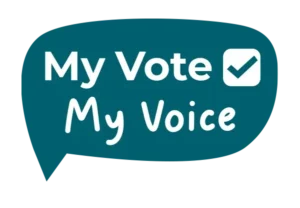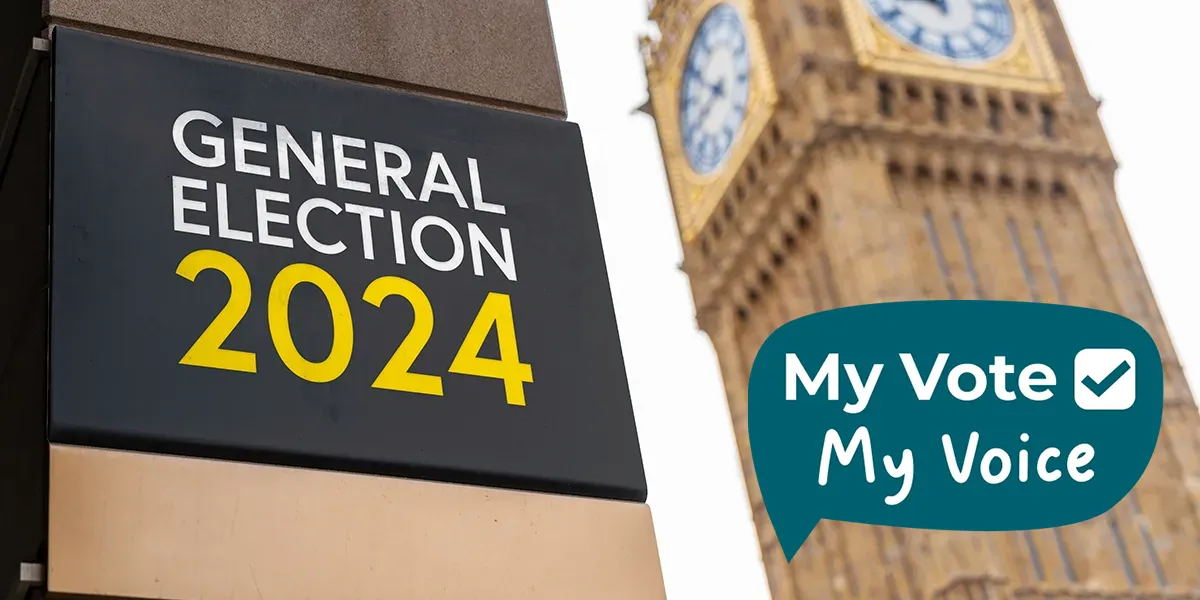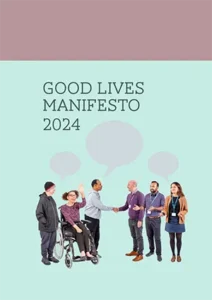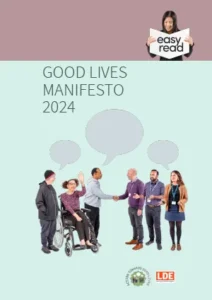It won’t have escaped anyone’s attention that in just a few weeks’ time, we – as a nation – will be heading to the polling stations to cast our vote in the General Election.
All of the political parties are already in full campaigning mode, canvassing for our support and fully aware that every single vote matters; they know that in many constituencies there may only be a few votes deciding who will represent us and our interests in the Houses of Parliament.
Given the outcome of the General Election determines who governs our country in the coming years, it stands to reason that everyone’s vote is precious, valued and appreciated.
And this includes anyone with learning disabilities and people with autism.
The UK has a population of just under 67 million people and, according to Mencap, there are 1.5 million people in the UK with a learning disability. Even when young people below the voting age of 18 are discounted from these figures, there is a huge number of people with a learning disability who are eligible to vote in July.
It may therefore surprise you that in research from as recently as 2021, commissioned ahead of the local elections, a key finding was that 27% of those surveyed did not know that all people with a learning disability have a legal right to vote.
Furthermore, in the same research, there were additional findings which proved very concerning:
- 80% of respondents reported that polling stations were difficult to use for people with a learning disability
- 76% struggled to find easy-read manifestos
- 82% of people felt the Government did not listen to those with a learning disability as much as it listens to other people
Alison Barnes is the Tenant Engagement Officer at Fairoak Housing Association: “The date set for the General Election [Thursday 4th July] is referred to as ‘independence day’, and we want to make sure that the voice of our tenants and other people with a learning disability or autism are heard and their independence is supported.”
“Everyone’s vote counts equally, and this General Election is such an important opportunity for the candidates and their political parties to tangibly demonstrate their support for people with a learning disability or autism.”
Taking the initiative, Alison and James Harrison (one of the Fairoak Owls) have reached out to all five candidates in the Westmorland and Lonsdale constituency, including the incumbent Tim Farron MP, asking them all to sign the Good Lives Manifesto Pledge Card.
Created by Learning Disability England, the Good Lives Manifesto includes six key objectives which they (and Fairoak) are asking political candidates to support:
- Be a champion for the rights of all people with learning disabilities, including people from minority ethnic communities and with high support needs.
- Reform social care so it meets the rights of people with learning disabilities and their families and provides fair pay for social care workers.
- Have effective, reasonably adjusted health services that contribute to better health and raising life expectancy for people with learning disabilities
- Help people with learning disabilities get the jobs they want supported by a system that recognises contributions not forcing poverty.
- Make sure people with learning disabilities have the same access to housing options as their non-disabled peers.
- Make this an accessible General Election.
The Good Lives Manifesto has been created by Learning Disability England members, including over 450 people comprising organisations and individual members expressing what’s most important to ensure people with learning disabilities live good lives.
Good Lives Manifesto 2024
PDF Download (Learning Disability England website)
Good Lives Manifesto 2024 – Easy Read
PDF Download (Learning Disability England website)
Good Lives Manifesto 2024
PDF Download (Learning Disability England website)
Good Lives Manifesto 2024 – Easy Read
PDF Download (Learning Disability England website)
So what does James think about this last point, on making this an accessible General Election?
“I have only voted in two elections previously – one being the last General Election and the other being Brexit. I’ve not always had the best experiences with people [canvassing for my vote] as they don’t always listen to me.”
“It is something that I’m interested in, and I will go and hear them [the candidates] giving talks, but I’m too shy to go and talk to them. But I do want to do it, I do want to stand up and say my piece because we all have the right to vote.”
However, finding out more about each candidate, their party and what they are trying to achieve isn’t always easy: “Their information [manifesto] isn’t always set out clearly or in an easy read version. How can I vote for you if I don’t know what you stand for?”
“We had a meeting with a group of tenants just a few nights’ ago and heard their thoughts and feelings on the forthcoming General Election.” Continues Alison.
“This wasn’t about who they were going to vote for, but the lead up to the Election and the actual voting process. Several of them said they were overwhelmed by going to vote, unsure about where they should go and what they had to do.”
For some, this meant that they simply put their voting card in the bin.
“Obviously, this is a terrible shame as that person hasn’t been enabled to cast their vote because they are either disengaged or not understanding what’s being asked of them.”
“Here at Fairoak, we are doing what we can to support our tenants, whether it’s explaining the voting process or helping them to register for postal voting if they don’t feel like they can go to the polling station in person.”
“Whilst we can’t physically go into the voting booth with them, it’s important that they feel supported and also have had information explained to them in order to help them make their choices.”
 My Vote My Voice
My Vote My Voice
Created by partner organisations United Response, Dimensions, Mencap and Ambitious About Autism, along with the people who draw on their care and support, My Vote My Voice (https://www.myvotemyvoice.org.uk/) is a campaign to encourage people with learning disabilities and autistic people to vote in the 2024 General Election.
“My Vote My Voice has taken information from all the political parties along with the practicalities of registering to vote and physically going to the polling station and put it into an accessible format on their website.”
“The website has so many great resources and we’re encouraging all our tenants, their families, friends and support workers to go online and hopefully find the answers to their questions about voting in the general Election.”
Article References:
Good Lives Manifesto (Learning Disability England): https://www.learningdisabilityengland.org.uk/good-lives-manifesto-2024/
Mencap: research and statistics – number of people in the UK with a learning disability: https://www.mencap.org.uk/learning-disability-explained/research-and-statistics
Dimensions survey highlights importance of empowering people with a learning disability and/or autism to vote: https://dimensions-uk.org/press-release/dimensions-survey-highlights-importance-empowering-people-learning-disability/
My Vote My Voice: https://www.myvotemyvoice.org.uk/
Candidates for the 2024 General Election – North West England: https://en.wikipedia.org/wiki/2024_United_Kingdom_general_election_in_North_West_England#Candidates
Candidates for the 2024 General Election – North East England:


